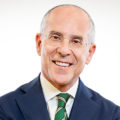
Model and landmark in the circular economy. Updated data on the evolution ofcircular economy in Italy they photograph our country among the most efficient in Europe. Second ASviS, the Italian Alliance for Sustainable Development, in 2017 the share of subjects prime retracted and re-entered in the economic system it was 17.7%, against a European average of 11%. Compared to Goal 12, that is the objective on the "Consumption and responsible production" of2030 Agenda of the UN (which includes 17 overall goals), Italy has made significant progress in recent years, settling in second position, behind the Netherlands. With regard to the proper waste recycling, the good practice has spread more and more, reaching, in 2019, close to the 50% of correctly recovered waste. Much has been done, but much still remains to be done especially with regard to the production of garbage, still excessive along the boot: in 2019 at the per capita level, 5 quintals were produced (an increase compared to previous years).
Circular economy: the role of plastic
Among the many areas of ecological transition a central role will be played, for example, by how the use of plastic will evolve. As ASviS explained in the report on "The national recovery and resilience plan"Published in March 2021," the postponement of the entry into force of the plastic tax it is not to be considered positive from the point of view of Goal 12 ». For the tax on plastic packaging, the extension to 1 July 2021 was confirmed in the budget law. According to the ASviS, it will become increasingly important "to encourage the reduction of the production of packaging waste, promoting recycling and circular economy also linked to the use of certified raw materials for the sustainable management of resources ».
The European action plan
The plastic emergency was also accepted as a priority at the European level where, as highlighted in a publication of Ispra (the Higher Institute for Environmental Protection and Research, subject to the supervision of the Ministry of Ecological Transition), it emerges how much plastic (and its use) are central elements of action plan community oncircular economy. "Over the last 50 years - reads the document - the role and importance of plastic in our economy have grown steadily" with production "increased by twenty times compared to the 1960s".
In parallel to this diffusion capillary, improper disposal practices and incivility on the part of some have damaged the environment to the point that today the presence of plastics is microplastics in the seas and oceans it represents a global emergency (to date they float 150 million tons of materials from the Pacific to the Atlantic). To address this too, the Minister of Sustainable Infrastructures and Mobility (and former founder and spokesperson of ASviS) Enrico Giovannini had explained the urgency of studying a design to ensure that Italy in 2030 is voted for development sustainable (you can read the intervention in this article taken fromHarvard Business Review Italia). One of the possible ways is the one indicated by the recent one joint venture equal between Unilever is Serious Plast, which will convert the plant in Pozzilli, in the province of Isernia, to make it one of the most advanced vertical poles for the production of recycled plastic in all of Europe (the investment is 75 million euros).
Sustainability as a compromise
It is not about giving up a material valuable is helpful, but to change the habits of use. This is only a piece that will compose the path towards the transition ecological, in which it is necessary to take into account many actors in the field. According to the EU estimates in the old continent the plastics sector employs 1.5 million people and in 2015 it generated a turnover of 340 billion euros. Taking up what was recently said by the Minister of Ecological Transition, Roberto Cingolani, "Sustainability is a compromise: being sustainable means finding a compromise between different instances". Therefore, starting from best practice on the circular economy, «the country must aspire to be a reference nation. We must protect and improve excellence ».
Alessandro Di Stefano






